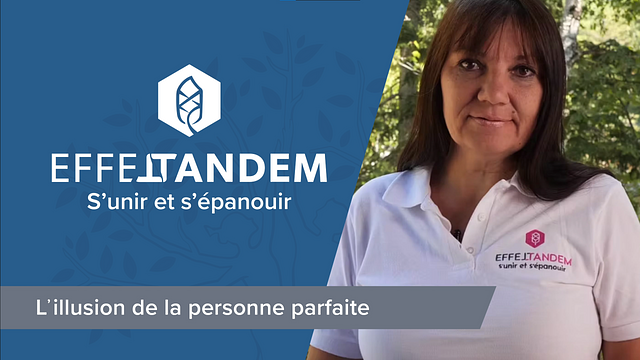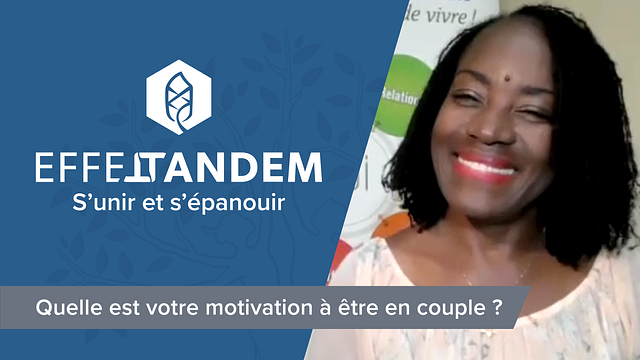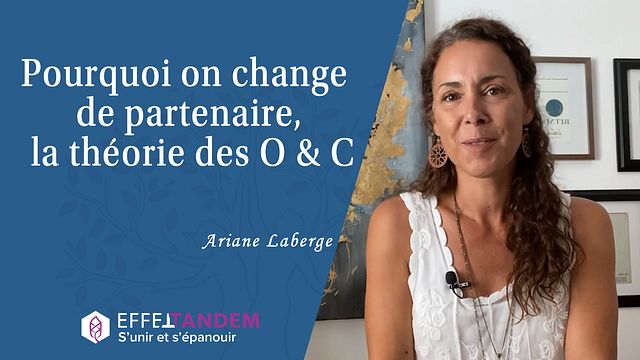What is love language? It's very simple, it's our way of communicating, of expressing, of showing our love to the people around us, whether it's our relatives, our children, our friends, our love partners, pretty much anyone. What is interesting first is that we need to understand the basic premise.
I'm going to ask you the question. What do you think is the number one need in a human being? Ask yourself, think about it for two seconds, what is the number one need in a human being? Once you get past Maslow's pyramid of clothing, shelter and food, what comes first and foremost in the human experience? If you've thought about it, you've definitely found the answer. It is quite simple, it is to love and be loved. All human beings, what we are looking for the most out of the life experience is to feel that we are connected to someone, that we are connected to others, that we can give and receive love.
Now, here's where it gets a little complicated sometimes, is that every human being has their own way of giving and receiving love. We call these love languages. Today, I'm going to share with you the 4 main love languages that I think you'll find quite simple and quite fun. It will be easy to remember them. In fact, I can tell you from this that it can make a very good discussion in a first or second love encounter. You go on a date, I think it's really a great subject to put forward to discover the other person, especially to speed up the process to see if it's a partner who is compatible and with whom there is really a possibility, a potential in the medium to long term. In the short term, we often become a little blinded by pheromones, we don't always see clearly.
I will name them right away, then I will explain them to you. The 4 great love languages are totem animals, we have the cat, the dog, the goldfish and the canary. I am quite sure that I have caught your attention, but I will explain them in detail so that you can understand. Because if you just hear the names of the animals, it's easy to project and imagine many things.
The first one happens to be the cat. The cat, in NLP or neuro-linguistic programming, is the one that we would call kinesthetic, that is to say that its experience passes much through its feeling. We can look, for example, at someone who has a cat. You can see, a cat, it walks around, it's independent, it lives its life, but when the time comes to go and look for love, it gets closer, then it comes to stick, it purrs until it has had its dose of love. But then from that, it goes away, it continues its life, everything is beautiful. For some human beings, it's a bit the same thing. Their modus operandi is kinesthetic, it is the cat. That is to say that what he needs, this partner, it is touches, it is caresses, minouches, grapouilles, cuddles, small kisses. He needs to have a physical experience with his partner to feel connected, to feel that he is receiving love, and then often to give it. Mind you, a very important nuance, this is not necessarily sexual touching. Don't get me wrong. It doesn't mean that you have to touch the other person as if you wanted to make love, it just means that you want to touch the other person to say "I love you", but without necessarily saying it with words, without looking at them, it's just with a simple touch. The first one is the cat.
But there are some who will say "yes, but let me go, I am not a piece of meat, give me some air, I need to breathe. What I need is to hear it, I want you to tell me. This one is the second one, the dog. Look at a dog in his daily life. A dog is a being that is called highly auditory, that is to say, it reacts a lot to sound. You look at him, you say to him "yes, you are a good dog, you are a good dog", and he looks at you, then he is in a good mood. Then, on the contrary, when you raise your voice, you say "no, bad dog, that's not good", all of a sudden he becomes compressed, he is contracted, he is afraid. Some human beings, it's kind of the same thing. What they need is to hear words of love. But be careful, it's not necessarily the words we want to use, it's more in the way we express it through our voice. Look at the voice I am using right now, listen to it. I have a voice that is a little bit more honeyed, that is a little bit more muffled. And some people, when you use that tone of voice, it's kind of like going straight from the highway ear to the heart where it's like, "Oh, I feel so loved by this person. It can be all kinds of words, it can be "honey, I'm so lucky to have you in my life", "I'm so glad I found you", "I'm so good with you", "for a woman, I feel safe with you". It doesn't matter what it is when you use those words, but especially in the intonation I just gave you, you go straight from the head to the heart, and it misses.
But there again, there are some partners who will say "yes, but talk is cheap, it's all very well to talk, but what I want is not for you to talk, what I want is for you to prove it to me. These beings are more visual, they are called goldfish. By the way, I make a small parenthesis right away, there is not one love language that is better than the other. Sometimes you compare the cat, the dog, the goldfish and you can say "goldfish", it doesn't mean anything. All 4 are equal, they are just different, like all human beings on earth. We are all equal, but we are different, we are all a unique expression of life. So, the goldfish, what it needs is to perceive that you love it through gestures of attention and gifts. So what he wants is for you to prove that you love him. For example, let's look at a goldfish, it's not usually too complicated. You'll clean his bowl, you'll change his water, you'll clean his little rocks at the bottom, you'll give him food. Gestures, attentions and gifts. So, it's a little bit the same for some human beings. What they need is to perceive it. It can be, for example, that you get up in the morning, you pour the person's coffee and you put exactly what they like in it, a sugar, a soy milk. Or it could be going out in the morning when there's a snowstorm, you leave before your partner, you shovel their car. Or you take his car to run an errand, you fill it with gas, then you come back and you don't tell him. Or you give the kids a bath, you cook his favorite dinner. These are small gestures, small attentions, small gifts, but they will make the person, the goldfish, feel better.
But then again, there are partners who will say "yeah, gifts are nice, I appreciate your gestures, it makes me happy, but for me, it's not that that makes me feel that you love me. What I need, the real gift, is you, I need to feel that you are present with me, at my side in the experience of life." Let's face it, today, in our modern society where everyone is plugged into their phones and everyone is pretty much half-hypnotized, there are a lot of people who suffer from what we call presenteeism. Before, we only had absenteeism, meaning that people were absent from the body. Today, it is presenteeism, they are present in body but absent in mind, they are elsewhere, they are obsessed with their concerns, their anxiety, their fears, their phone. They are there, but they are not really there. And that's a real love killer for the fourth love language called the canary. The canary is easy. It has its cage, it lives its life, it's quiet. Then, at some point, someone comes along, his love partner. When he sees him, he lights up like a Christmas tree. He needs to talk, he needs to express himself, he needs to communicate, but above all he needs to be seen, he needs to be perceived in his environment. So if you are with your partner who is a canary, who needs this connection, that is to say a quality presence, but the partnership is there but it is not really there, the canary dies out because it feels that it is all alone in the world. One of the greatest sadnesses also for a canary is to be alone with a partner, that is to say, it is in the presence of a partner but it feels alone inside, and then it quietly fades away. So the canary, to put it simply, what it needs is a quality presence. Your gift to him is to be fully present to him, to listen to him, to ask him questions, to do the things you do at first when you're in love with a person, like going for a walk while holding hands, to connect with the person by going to a restaurant, by having passionate discussions over a glass of wine, by telling you jokes. Whatever it is, realize that what the canary really deeply needs is your attention.
If we sum them up quickly, we have the cat, the dog, the goldfish and the canary. The cat is a kinesthetic, the touch. The dog is the auditory, the words that we use but in the softness, in the muffled. The goldfish is the proof, the gifts, the presents, the attentions, the gestures of attention. And the canary is the presence and the quality attention. What is very important here is that you ask yourself a question. First and foremost, I like to say that we always have one language that is predominant, and then we have another one that is not far behind, I call it the ascendant. For example, I am a cat with canary ascendant, that is to say that I love to be touched, but I deeply need to have a connection of presence and attention with my partner. If I don't have that, I quietly shut down. So start by asking yourself: what is my love language, how do I express my love to others? Then, I know that you may say to yourself "I have the 4, I express the 4". Okay, okay, that's true. By the way, we always use the 4 love languages, we have them all, and we use them especially at the beginning.
Think about it, the last time you were in seduction mode and you wanted to charm the person in front of you, you were there, you asked questions, you listened to her, you touched her, you bought her little gifts, you gave her love words to seduce her. But there came a moment in a medium to long term relationship when you became comfortable, you were in what is called the law of familiarity, that is to say that you got used to it, there came a moment when, all of a sudden, there were some love languages that arrived, it was as if you used them a little less. Why? Because we use our predominant languages, so our language and its ascendancy.
So, I invite you to ask yourself this question. What is your love language? If you have difficulty finding it, one simple thing you can do is to recall a specific memory, take a period of time, when you felt deeply loved by a partner in love. Then try to see, feel, hear in your memory what exactly was going on, what exactly the person was doing to make you feel loved by them. That's a really good lead.
And once again, I repeat, these 4 concepts, these 4 love languages, can make an extraordinary conversation when you find yourself in a first or second love dating. You say "I saw a video of a weird guy, David Bernard, who talks about love languages, a cat, a dog, a canary, then a goldfish", you try to explain, "what do you think you are?" Then, from the moment the person reveals his language to you, there you can see already from the start if there is a possibility in the medium long term, if there is a compatibility. Think about that.










